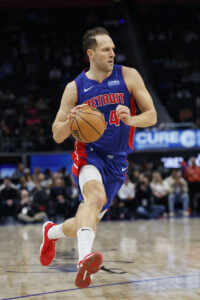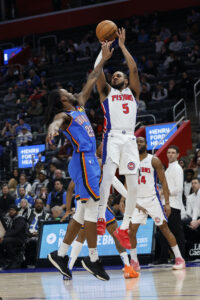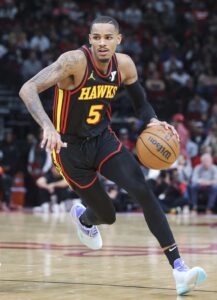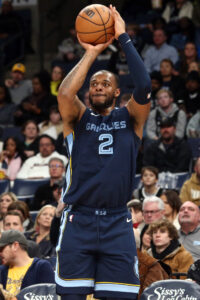A number of free agent signings have been finalized in the days since last Thursday’s trade deadline, but there are still many teams around the NBA with one or more open spots on their respective rosters.
For clubs with just a single standard or two-way opening, there’s not necessarily any urgency to fill those spots, especially ahead of the All-Star break. But the clock is ticking for teams who have two or more openings on their standard rosters to make a move, since clubs are only permitted to carry fewer than 14 players on standard contracts for up to two weeks at a time.
With the help of our roster count tracker, here’s where things stand for all 30 teams around the NBA as of Tuesday afternoon. As a reminder, teams are typically permitted to carry up to 15 players on standard contracts and three on two-way deals.
(Note: Teams marked with an asterisk have a player on a 10-day contract.)
Teams with multiple open roster spots
- Brooklyn Nets
- Note: One of the Nets’ roster openings is a two-way slot.
- Golden State Warriors
- Milwaukee Bucks
- Note: Both of the Bucks’ roster openings are two-way slots.
- Minnesota Timberwolves
- New Orleans Pelicans
- New York Knicks *
- Philadelphia 76ers
- Phoenix Suns
The Warriors, Timberwolves, and Pelicans are all currently carrying 13 players on standard, full-season contracts, with all three of their two-way slots filled. That means they’ll have to add a 14th man at some point in the not-too-distant future to adhere to the NBA’s minimum roster requirements.
Golden State and Minnesota made trades on February 8 that dropped them below 14 players, so those two teams have until Feb. 22 to add a player. New Orleans’ deadline is coming a little earlier, since the club dipped to 13 when Malcolm Hill‘s 10-day contract expired on Feb. 6.
No roster moves are required for the Nets and Bucks, as both teams have at least 14 players on standard contracts, with one or more two-way openings. I’d expect Brooklyn and Milwaukee to fill those two-way slots before the two-way signing deadline in early March, though they don’t necessarily have to.
The Knicks and Sixers currently only have 12 players on standard, full-season contracts. New York also has Taj Gibson on a 10-day deal, while Philadelphia is poised to sign Kyle Lowry to a rest-of-season contract. Both teams will need to make at least one more roster move by Feb. 22 after dipping down to 12 players on trade deadline day last Thursday.
As for the Suns, they’re currently carrying just 13 players on standard contracts, but it sounds like they’ve already lined up a deal with a 14th man — a report earlier today indicated that they’re preparing to sign Thaddeus Young.
Teams with one open roster spot
- Boston Celtics
- Charlotte Hornets
- Chicago Bulls
- Cleveland Cavaliers *
- Dallas Mavericks
- Indiana Pacers
- Miami Heat
- Utah Jazz
- Washington Wizards
One of the 14 players on the Cavaliers‘ standard roster is Zhaire Smith, who is on a 10-day deal. Once his contract expires next week, the Cavs will have to either re-sign him or add another 14th man — and they’ll have to do it right away.
In addition to being prohibited from carrying fewer than 14 players on standard deals for more than two weeks at a time, NBA teams are limited to 28 days of carrying fewer than 14 players over the course of a season. The Cavs have already reached that 28-day limit, having carried just 13 players from January 4-18 and again from January 28 until February 11.
The rest of these teams have 14-man standard rosters with no two-way openings, meaning there’s no urgency for them to make any moves, though they’ll likely fill those open roster slots at some point between now and the end of the season in April.
Teams with no open roster spots
- Atlanta Hawks
- Denver Nuggets
- Detroit Pistons *
- Houston Rockets
- Los Angeles Clippers
- Los Angeles Lakers
- Memphis Grizzlies *
- Oklahoma City Thunder
- Orlando Magic
- Portland Trail Blazers *
- Sacramento Kings
- San Antonio Spurs
- Toronto Raptors *
Twelve of these 13 teams have full 18-man rosters, with 15 players signed to standard contracts and three to two-way deals. However, the Pistons, Trail Blazers, and especially the Raptors are worth monitoring here, since they all have players on 10-day contracts and can open up roster spots when those deals expire.
Detroit and Portland are each carrying a single player on a 10-day deal, while Toronto has two, meaning the Raptors will dip down to 13 players on standard contracts during the All-Star break. They’ll have up to two weeks to get back to 14.
The Grizzlies are actually carrying 19 players at the moment, with 16 players on standard contracts (15 full-season deals, plus Jordan Goodwin on a 10-day) because they’ve been granted a hardship exception due to all the injured players they’re missing.
 The Knicks pick up a pair of solid rotation players (
The Knicks pick up a pair of solid rotation players (

 What does that mean in practical terms? Let’s use Grizzlies big man
What does that mean in practical terms? Let’s use Grizzlies big man